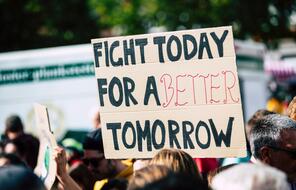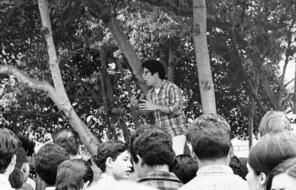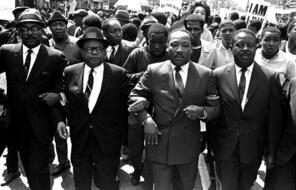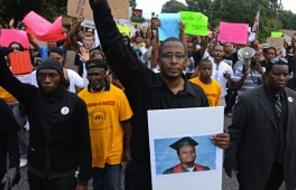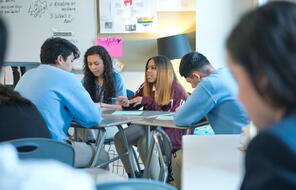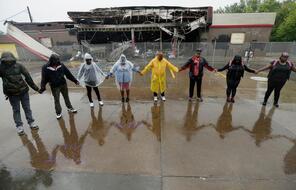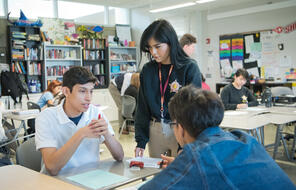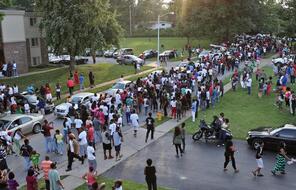Blackbelt
At a Glance
Subject
- Social Studies
- Democracy & Civic Engagement
Marc, an 18-year-old student in Boston who emigrated from Haiti, wrote about the karate black belt his older brother gave him and how it represents an important legacy.
I wasn't ready to take the world on my own. When I heard the terrible news about my beloved brother, I was caught off guard. My guardian had passed away. After my father abandoned us, my brother was like a father to me. He had been there for me, supported me, and stuck with me through stick and stone. No matter what, he never failed to protect me. I was a hotheaded young kid. I couldn't control my emotions. All I used to do was smash things and bounce around like a pinball: bong, ping, ding. But I always lost the game. My brother, with his kindness, spoke to me and gave me advice, calmed me down, and taught me to have a bit of self-control. I didn't know the way of life until my brother took me under his wings and showed me the path to travel on.
He had been my idol way before I knew the karate star that he was. He answered to Jackson, but went by Jacky on the street. He inherited the name for being a fanatic of Jackie Chan's movies. My brother had been learning self-defense since he was twelve years old. He was a courageous and highly passionate athlete. He was such an expert at Taekwondo that he developed a habit—in other words, he was addicted. He was dedicated, never hesitated to act on his quick reflex, and never backed down from any fight. Because of his kindness, as soon as my brother went into the martial arts club, everybody had to stand by to salute him as a leader. After the formal greeting of respect, the informal greetings began. Members of the club exchanged the secret handshake with him, and others slapped hands with him. In my mind, I can still see how happy he was, with a smile on his face, talking with his friends. Everyone wanted to have a conversation with him. He was determined to lead the club as a good Samaritan, which means to have to be a community leader. He did that really well.
From my perspective, my brother was a giant because Jacky was not only a hero, he was also a counselor for me. He used to try to convince me to follow in his footsteps, to become an athlete like him. One day he took me to Julian Martial Arts with him, and the way I saw the others practicing karate seemed like military training. I was having a bad feeling, as if I did not belong in that place. Jacky could read my feelings by looking at my face, so he took me to an empty room and had a small talk with me.
He said, "What's the matter?"
"I don't think it's a great idea to follow your footsteps because I'm not the type of person that you are," I replied. "Doing karate is not in my nature."
He held my hand and told me, "Listen brother, don't ever believe or listen to people who say you can't do anything. Rapidly throw those stupid ideas out and do your thing. Otherwise, you will never succeed in life. You have to see yourself as a genius."
Then one day, Jacky gave me something more than advice. "I am going to a competition sponsored by the mayor," he told me. "I want you to have this." He handed me his black karate belt.
Ever since I found out about the tragic news a few months later, that my beloved brother had died, I have had to take care of myself and my family. Keeping Jacky's black karate belt close to my heart, I have tried to follow in his footsteps. No matter how hard, I have to do what it takes to show him that his advice to me was not in vain. 1
- 1Marc Scutt, "Black Belt," in I Want You to Have This: A Collection of Objects and Their Stories from Around the World, written by eleventh graders from Boston International High School (Boston, MA: 826 Boston, 2013), 22. Reproduced by permission of 826 Boston.
Supporting Materials
How to Cite This Reading
Facing History & Ourselves, “Blackbelt,” last updated June 17, 2017.
This reading contains text not authored by Facing History & Ourselves. See footnotes for source information.

